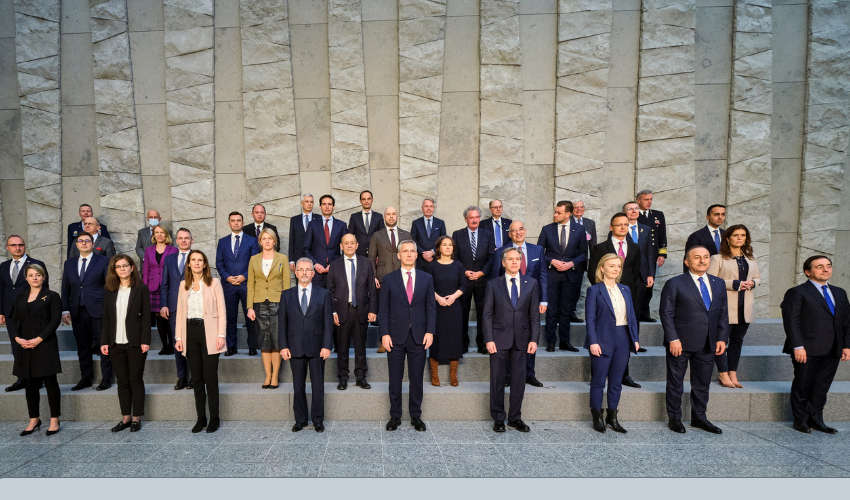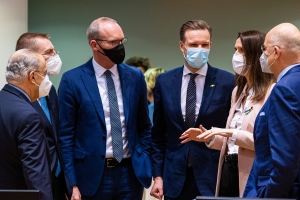NATO's Extraordinary Ministerial Meeting: conclusions
Today, Friday 4 March, Deputy Prime Minister and Minister of Foreign Affairs Sophie Wilmès participated in an extraordinary NATO ministerial meeting. This meeting was extended to include the Foreign Ministers of Finland and Sweden, as well as the EU High Representative for Foreign Affairs, Josep Borrell. The goal was to take stock of Russia's military aggression in Ukraine.
In her intervention, the Deputy Prime Minister emphasised several points. First, she expressed satisfaction with the unity and determination of the allies in the face of Russian aggression. She also reiterated the need to maintain maximum pressure on Russia and Belarus to immediately cease hostilities and withdraw Russian troops.
Sophie Wilmès once again pleaded with allies and partners outside the Alliance for continued, close collaboration. "We must coordinate our bilateral initiatives very well to provide the necessary assistance to the Ukrainians in their legitimate right to defend themselves without risking the conflict spilling over to the rest of Europe," the Deputy Prime Minister said, adding in passing that NATO is not a party to the conflict and remains a defensive alliance.
The relationship between NATO and Russia was also discussed. Belgium believes that we should reconsider our relations with Moscow, taking into account the long-term consequences of the current situation. Sophie Wilmès: "We must not give up the available mechanisms for dialogue, which we could use in the future. Even though Russia is making any dialogue impossible today by choosing war and persisting in it." Russia and Ukraine nonetheless began talks, which led to an agreement on humanitarian corridors. The details of this agreement must now be made public to determine how it will translate on the ground.
Regardless of current events, the present conflict in Ukraine is an important issue for NATO's future. Sophie Wilmès: "We must begin to integrate the current context into our reflection to determine how NATO acts on its territory and how it sees its future as an Alliance. This process is consistent with what is happening around the NATO 2030 strategic concept."


